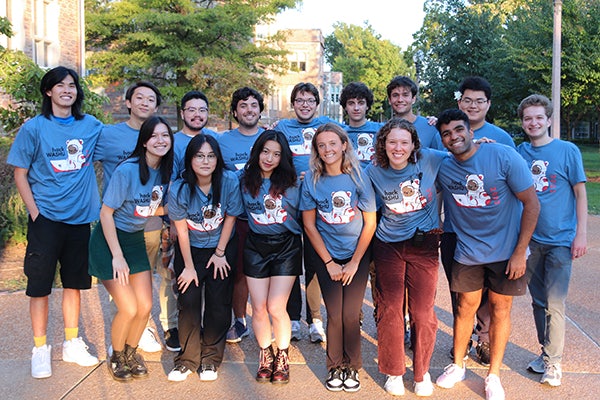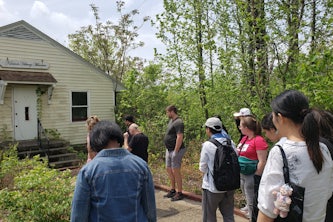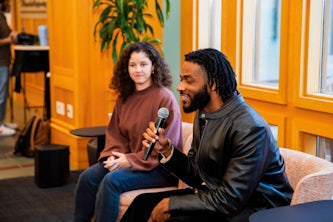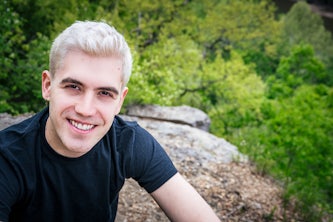Bonding through coding, lack of sleep
More than 200 students took part in the 2023 Hack WashU hackathon competition, the first held in person since before the COVID-19 pandemic

More than 200 students at Washington University in St. Louis took part in Hack WashU, a two-day hacking competition hosted by students at the McKelvey School of Engineering, Oct. 14-15.
This year marked the event’s return as a fully in-person competition since the COVID-19 pandemic. Planning a large hackathon for a community of students who may have never attended one was a challenge for organizers. Last year’s event was a hybrid competition, with WashU teams taking part in-person and others participating through the Discord app.
“The hybrid event felt like the safest bet as we were dealing with uncertainty around room capacity and other pandemic constraints,” said Emily Sheehan, who is pursuing bachelor's and master's degrees in computer science and is co-president of Hack WashU. “None of us had participated in an in-person hackathon either, so Hack WashU 2022 served as a baseline for this year’s event. It gave us a good vision of what worked well and what didn't. When we started planning for this year's hackathon, we were able to dive right in."
This year, organizers were excited to bring back the collaborative and social physical environment that hackathons are known for.
“When people think of a hackathon, they think of sleep-deprived people in a big room together working all night and scraping together what they can to make something at the end of the weekend,” said Jack Heuburger, who also is pursuing bachelor’s and master’s degrees in computer science and is co-president of Hack WashU. “Even though it’s mentally draining, it’s a rewarding experience.”
Participants aren’t required to know how to code to take part in the event, and the competition is divided into two classes: one for first-year and sophomore students who have limited programming experience and another for students who have taken upper-division computer science courses or completed internships.
“One thing a lot of computer science majors can relate to is having the itch to build something and spending a whole weekend on it,” Heuburger said. “Building apps and websites aren’t touched upon until the higher-level computer science courses, so this is essentially the first chance many students have to do this kind of programming.”
Nine teams were awarded prizes during the event with the top prizes going to a team that developed a project that aims to make registering for classes at WashU easier and another that aims to provide speakers with real-time feedback during lectures and presentations.
“People were enthusiastic from the get-go, and the projects were extremely impressive and complex,” Sheehan said. “We provide participants with the flexibility and resources to build whatever they want and encouraged them to work with new people, venture into unknown technical territory and push their limits."
Competition participants could also attend workshops, network with industry professionals, and learn about internship and job opportunities with event sponsors such as MasterCard, Spectrum and RCA Corp.
Organizers say they plan to host more events in the future that will help students build their technical skills as well as their communities.
“Since we've been the leaders of everything, our emphasis has been the social component,” Sheehan said. “Technical growth and ingenuity are at the core of it, but building a social fabric among computer science majors and technically minded students is the real motivating factor for all involved.”



